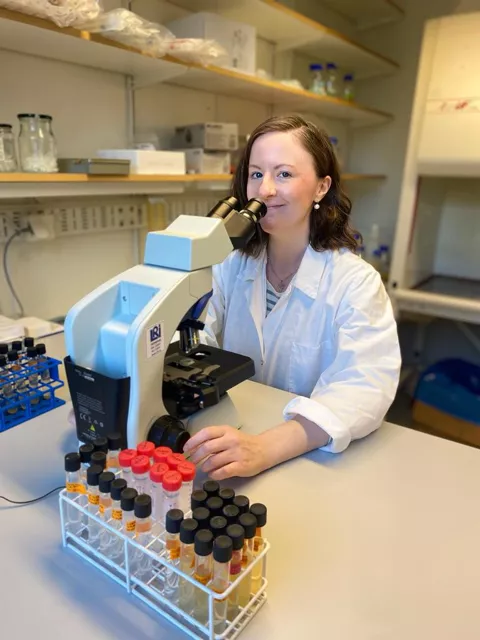The first life forms that evolved on Earth were called prokaryotes – a group of single-celled organisms that include bacteria. However, between two and three billion years ago, more complex types of organisms, known as eukaryotes, appeared. In a new study published in the journal Nature, scientists have examined the genetic make-up of microorganism Asgard archaea, which played a key role in the transition from single-celled to multicellular organisms.
“These Asgard archaea can help us learn more about our unicellular ancestors and how complex life evolved. Possibly as a result of symbiosis between several single-celled organisms – including a relative of the modern Asgard archaea,” says Courtney Stairs, biology researcher at Lund University.
The study shows that some proteins in Asgard archaea are related to proteins that were previously thought to be specific to the more complex life forms that developed on Earth millions of years later. Through the analysis of hundreds of proteins, the researchers were able to identify the genetic make-up of the entire genetic branch where the more complex eukaryotes originated.
“Our findings refine our understanding of our ancient single-celled ancestors and help us differentiate our unique characteristics from single-celled organisms. The development of eukaryotes raises questions about how cells cooperate and evolve,” says Courtney Stairs.
Asgard archaea is named after the realm of Asgard in Norse mythology because the first findings were identified in sediment near Lokis Castle in the Atlantic Ocean. Researchers believe that ancestors of these microorganisms lived in environments with moderate temperatures and relied on various sources of nutrients. According to Courtney Stairs, we can learn a lot about an organism just from its DNA.
“The study is a classic origins story that seeks to answer one of the big questions in evolutionary biology – where did eukaryotes come from? Our results challenge the conventional understanding of the origin of complex life forms and highlight the Asgard lineage in unraveling the mysteries of evolution,” says Courtney Stairs.

